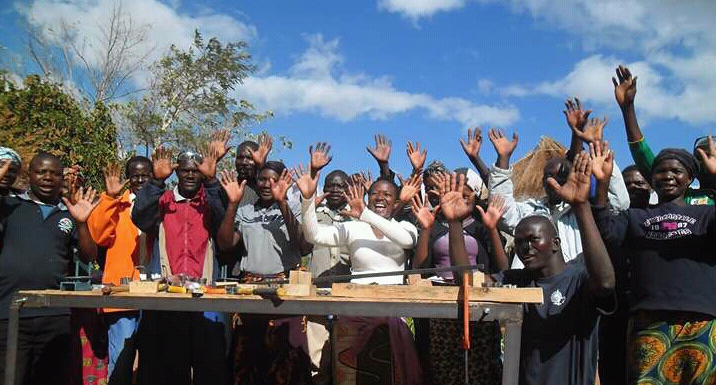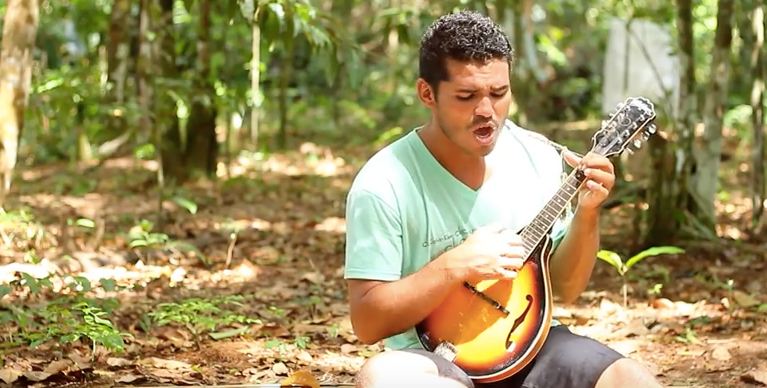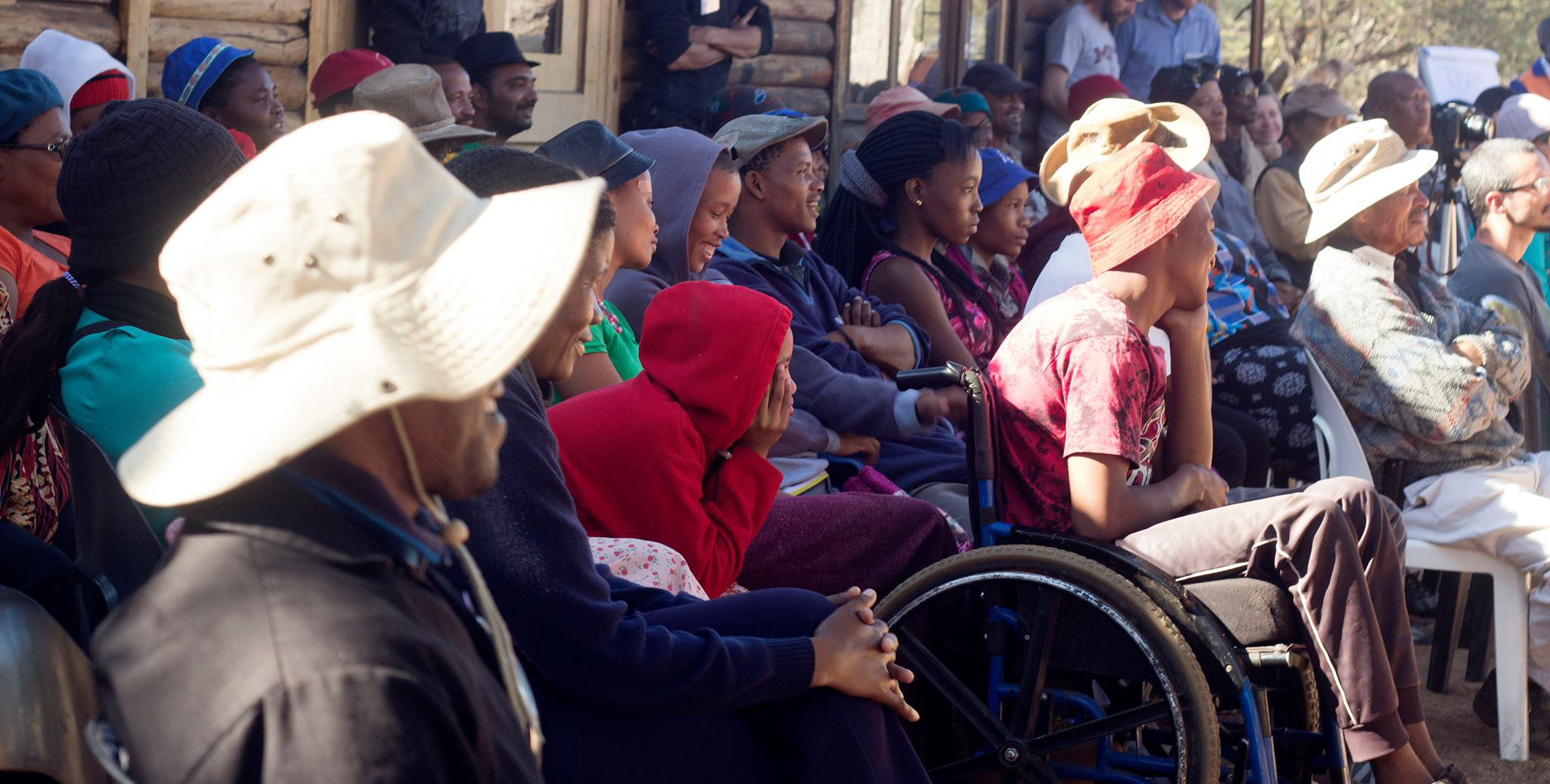IDIN awards 12 Sustainability Grants supporting design education and incubation programs
blog
Tuesday, February 28, 2017

IDIN is pleased to announce recipients for a special round of awards supporting long-term sustainability planning for innovation centers and other organizations teaching design methodologies and supporting local communities to develop technologies and approaches that address important social, economic, and environmental needs.
The program’s awardees are a carefully selected group, including seven previously funded Innovation Center Partners and five centers new to our group, whose teams have established track records offering training and convening innovators in their local community. Proposals were evaluated by a team of IDIN Network members and affiliates, and selected for funding based on criteria including their alignment with the IDIN mission, demonstrated program impact, and the strength of their sustainability plan.
These centers will join our Innovation Center Partner working group, which now connects the leaders of twenty programs in sixteen countries to promote the exchange of ideas, resources, feedback, and support, and the formation of joint efforts.
The following are this year’s Sustainability Grant recipients:
Change Hub Innovation Center -- Lang’ata Women’s Prison, Nairobi, Kenya
DefkoAkNiep Lab -- Dakar, Senegal
Global Innovation & Creativity (GIC) Space -- Bamenda, Cameroon
Kepler Tech Lab -- Kigali, Rwanda
Makeistan -- Information Technology University, Lahore, Pakistan
Project DEFY “Define Education for Yourself” -- multiple locations, India, Uganda
Rural Innovation Lab -- Nepal
Sisaket Innovation Lab -- Sisaket, Thailand
Victronix Workshop -- Dar es Salaam, Tanzania
C-INNOVA- Centro de Innovación de Tecnologías Apropiadas y Educación - Bogotá, Colombia
C-Innova offers design education to underserved and vulnerable communities across Colombia, uses these experiences to inform the design of appropriate technologies that can benefit these communities, and offers a physical space for collective design and entrepreneurship that addresses vulnerable populations’ most pressing issues.
Established in 2015, C-Innova’s plan for sustainability currently focuses on improving the efficiency of their program delivery by creating mobile workshop units and building their team’s capacity to secure and sustain long-term partnerships with universities, secondary schools and other educational and innovation-focused institutions, and Corporate Social Responsibility programs around Colombia.
Change Hub Innovation Center -- Lang’ata Women’s Prison, Nairobi, Kenya
Change Hub Innovation Center works to bring quality design education to vulnerable populations in Kenya, particularly women and girls. Their year-old program at the Lang’ata Women’s Maximum-Security Prison in Nairobi teaches residents marketable skills such as graphic design, software development skills, and digital manufacturing.
To make the center sustainable, Change Hub is working to partner with companies and institutions who are interested in investing in workforce training. They are in the process of launching a pilot program in partnership with African Born 3D Printing, another IDIN Network member project, to train the Lang’ata students in the manufacturing and operation of their custom-designed 3D printer product.
DefkoAkNiep Lab -- Dakar, Senegal
DefkoAkNiep (“Do it with everybody”) Lab, established in 2014, aims to provide Senegal citizens space and information communications technology, manual and digital fabrication tools and hand-on training to promote learning, collaboration, and development of local solutions to ameliorate the challenges of daily life. Their programs include STEM education for children and training for women in developing new revenue streams through innovations like permaculture.
Joining the IDIN Innovation Center Partners for the first time this year, DefkoAkNiep Lab is currently investing resources in projects focused on clean and renewable energy solutions to attract the support of available grants and Corporate Social Responsibility funding.
Kafue Innovation Centre -- Kafue, Zambia
Kafue Innovation Center brings innovation and community together aiming to eradicate poverty through collaborative design process. Launched in 2015, they develop prototypes to improve the lives and livelihoods of community members in and around Kafue, Zambia and provide training in design and fabrication, access to shop tools, and mentorship to youth and adults working on their own projects and prototypes.
The team is working to outfit a new, larger, but more affordable workshop space to increase their capacity to offer large paid trainings for visiting organizations and to improve on their ability to manufacture their products for larger-scale distribution.
Kepler Tech Lab -- Kigali, Rwanda
Established in 2015, Kepler Tech Lab aims to provide local youth, women, and refugees with practical and technological skills and resources in design, engineering, and prototyping to develop solutions to community problems, marketable skills, and their own successful and socially responsible ventures.
The Kepler Tech Lab team is expanding their shop’s capacity to attract a greater number of paying users and workshop attendees while increasing the scope of their impact, and thereby strengthening their applications to local and international grant-making organizations focused on educational outcomes in Rwanda.
Kumasi Hive -- Kumasi, Ghana
Through its education and business incubation activities and partnerships, Kumasi Hive seeks to reduce poverty in Ghana by helping local entrepreneurs create jobs, training students with skills they need to obtain and retain 21st century jobs, and supporting the collaborative local development of technologies and ventures that can improve the lives of community members living in poverty. Kumasi Hive has been offering training in design, prototyping, and business skills to students and entrepreneurs and space, resources, connections, and support to social impact ventures since the beginning of 2016.
Kumasi Hive is working to increase their impact and diversify their revenue streams by expanding their educational programming to children and youth, implementing business consulting services for start-up ventures, and increasing their staff capacity for establishing and cultivating long-term partnerships.
Makeistan -- Information Technology University, Lahore, Pakistan
Makeistan offers training in and resources for hands-on, collaborative design and prototyping of solutions to local development and society challenges and fosters a diverse and multidisciplinary community of people working to create positive social change through innovation, fabrication, and dissemination of knowledge. They seek to reduce poverty and improve development outcomes by offering design and technical trainings to young students in under-resourced institutions and by directing the energies of ITU students and local professionals to local development challenges.
Makeistan plans to expand their impact and improve the financial sustainability of their outreach programs by expanding their prototyping facilities. By improving the quality, function, and volume of prototypes that can be created in the shop, they plan to attract and serve startups, hobbyists, and professionals from the area, and attract and retain more student volunteers, to subsidize and staff their work outside the university.
Project DEFY “Define Education for Yourself” -- multiple locations, India, Uganda
Project DEFY helps communities create independent, low-cost schools to provide free access to self-directed education for those who cannot enter or do not flourish in the existing school systems. In these schools called “Nooks,” community members of all ages equipped with internet access, simple tools and materials, and basic research and fabrication skills, safely express, experiment, and experience different domains of learning. With no teachers or exams, Nook leaders emphasise project execution, documentation, and knowledge sharing as the desired outcome of the learning process.
Now three years old with two Nooks in India, one in Uganda, and two more on the way, Project DEFY’s plans for long-term sustainability involve establishing partnerships with large and small development organizations looking to incorporate the Nook model into their education and capacity-building work with refugees and in low-resource urban and rural communities around the world.
Rural Innovation Lab -- Nepal
Rural Innovation Lab is a network of community collaboration spaces in rural villages with tools and resources for local community members to design creative solutions to local community challenges. The first of these, the Peace Innovation Lab established in Lamjung in 2012, provides training, access to internet, fabrication tools, and community projects to increase civic engagement and connect villagers to critical services.
In order to support the center activities, Rural Innovation Lab is launching a wireless internet subscription service for local community members and a summer internship-abroad immersive learning experience for international college students called 85ºEast, which is currently accepting applicants for its inaugural session.
In addition to supporting the sustainability plans of established centers, we selected a small number of grant recipients in our network currently establishing centers to support the continuation of existing IDIN Network education and innovation activities in areas where no innovation center currently exists.
Global Innovation & Creativity (GIC) Space -- Bamenda, Cameroon
GIC Space is an innovation space aimed at producing simple, cutting-edge, cost-effective medical innovations, enabling poor, remote and rural communities with the greatest need to enjoy affordable and accessible healthcare, and also bring to birth the next generation of problem solvers, who will use social entrepreneurship to create positive and lasting change in future in the healthcare sector in particular, and developmental issues in general.
Launched by IDIN microgrant awardee Dr. Conrad Tankou, GIC space is supported by sharing costs, resources, and expertise among the teams of entrepreneurs housed there. They plan to continue to grow by engaging more teams and projects and engaging funders and investors in those projects.
Sisaket Innovation Lab -- Sisaket, Thailand
The leaders of IDDS Sisaket — DSIL Global and Raitong Organics Farm — are establishing a training and innovation center to support IDDS Sisaket teams and provide continuity for projects and continued innovation, learning, and support after the summit concludes. They hope for the center to become a hub for the creative community in northeast Thailand.
The center hopes to establish research, training, and support programs for local communities, local and international universities, and conscious travelers through a newly established community-based tourism program. It will provide a base for existing social impact programs in Thailand and incubating local community innovations.
Victronix Workshop -- Dar es Salaam, Tanzania
Victronix aims to help young people with training, but lacking capital to start careers in manufacturing and the trades by providing hourly and daily access to shared tools and workbenches, technical and business trainings, and other crucial resources.
Run by network member and IDIN Training Grant awardee Victor Nyang’a, Victronix is currently adding inventory to their shop to increase the range of what users can accomplish and what can be taught in the space, and increase the number of users who can share the space at any given time.






